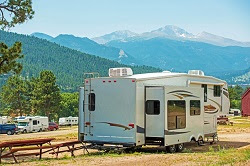The Tax Difference in Second Homes
A principal residence and a second home have some similar benefits, but they have some key tax differences. A principal residence is the primary home where you live and a second home is used mainly for personal enjoyment while limiting possible rental activity to a maximum of 14 days per year.
 |
Under the 2017 Tax Cuts and Jobs Act, the Mortgage Interest Deduction allows a taxpayer to deduct the qualified interest on a principal residence and a second home. The interest is reduced from a maximum of $1,000,000 combined acquisition debt to a maximum of $750,000 combined acquisition debt for both the first and second homes.
Property taxes on first and second homes are deductible but limited to a combined maximum of $10,000 together with other state and local taxes paid.
The gain on a principal residence retained the exclusion of $250,000/$500,000 for single/married taxpayers meeting the requirements. Unchanged by the new tax law, the gains on second homes must be recognized when sold or disposed.
Tax-deferred exchanges are not allowed for property used for personal purposes such as second homes. Gain on second homes owned for more than 12 months is taxed at the lower long-term capital gains rate.
This article is intended for informational purposes. Advice from a tax professional for your specific situation should be obtained prior to making a decision that can have tax implications.







